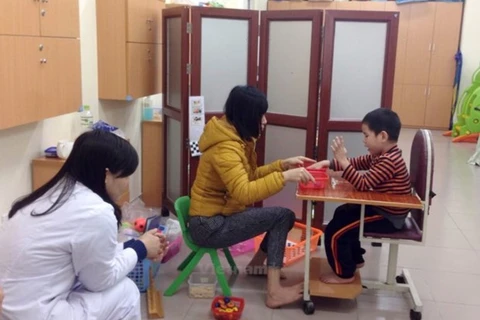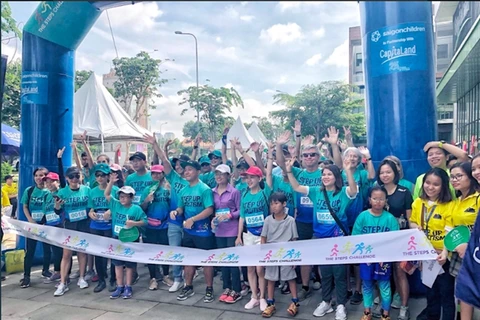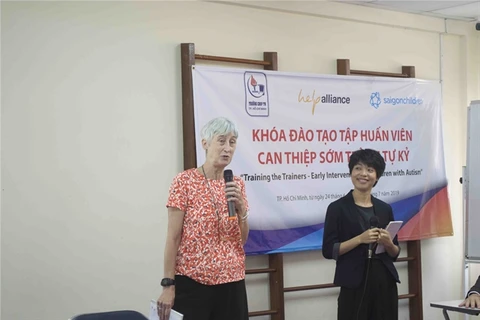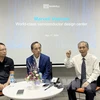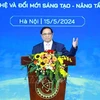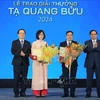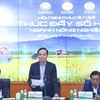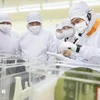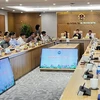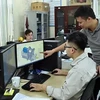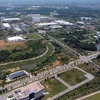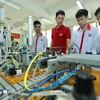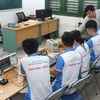 VRISG Director Nguyen Thanh Liem speaks at the third Vinmec International Conference on Cell and Gene Therapy held in Hanoi on October 31 (Photo: VNA)
VRISG Director Nguyen Thanh Liem speaks at the third Vinmec International Conference on Cell and Gene Therapy held in Hanoi on October 31 (Photo: VNA) Hanoi (VNS/VNA) - The Vinmec Research Institute of Stem Cell and Gene Technology reported six new mutated genes found in autistic children as part of a study on identifying gene mutations in children with autism in Vietnam.
This is the largest study of genes in autistic children in Vietnam so far, with important findings on genetic characteristics, providing an important scientific foundation for future autism screening, diagnosis, counselling and treatment.
"Identifying gene mutations in autistic children in Vietnam" is the first genetic database of autistic children's genome, built on decoding the whole protein coding. The study shows that the number of boys with autism is five times higher than girls. The finding is consistent with the hypothesis of previous studies in the world – genetic characteristics allow women to be more resistant to autism than men.
The study found 18 mutated genes in autistic children, of which six genes previously haven’t been recognised in relation to autism. Mutations were detected in a number of genes, such as SIP, LAS1L and IGF1, that are often seen in patients with cerebral palsy or intellectual disabilities. The other 12 are genes that have been reported in relation to autism, such as CHD8, DYRK, DYRK1A, GRIN2B and SCN2A.
The study is conducted independently by a group of scientists from the Vinmec Research Institute of Stem Cell and Gene Technology (VRISG) led by Professor Nguyen Thanh Liem from 2016-2019.
Vinmec, also for the first time, announced results of initial research on autism treatment by stem cell transplantation. In terms of interaction, language, decreased hyperactivity and life skills, patients have shown positive improvement after transplantation.
Combining stem cell transplantation with psychotherapeutic intervention may increase the effectiveness of autism treatment.
“Through the cooperation with the world's leading research institutes, Vinmec will continue in-depth studies on recovering health and improving the quality of life for many patients with autism and other diseases in Vietnam. We will also develop autism screening tests and further in-depth studies on the issue,” said VRISG Director Nguyen Thanh Liem.
The results of the genetic research in Vietnamese autism children was reported at the third Vinmec International Conference on Cell and Gene Therapy held in Hanoi on October 31.
Organised since 2017, the annual event aims to introduce, discuss and exchange updated information on gene - cell research around the world. With the theme "Gene and Cell Therapy: From Dreams to Reality", the event attracted more than 500 delegates who are experts in stem cell, immune cell and genomic medicine from hospitals, universities, national research institutes and international professional associations.
Vietnam has about 1 percent of the population, equivalent to 1 million people, with autism. Current autism treatment often focuses on psychotherapy and education methods that take a long time and are less effective. The disease has become a burden for patient’s family and society./.
VNA
